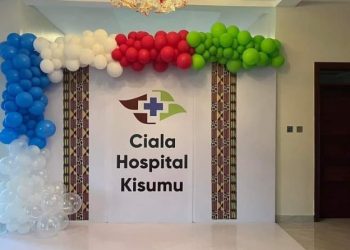Circumcision is the surgical removal of the skin covering the tip of the penis. List Of Free Circumcision Clinics In Nairobi. The procedure is fairly common for newborn boys in certain parts of the world, including the United States. Circumcision after the newborn period is possible, but it’s a more complex procedure.
Why it’s done
Circumcision is a religious or cultural ritual for many Jewish and Islamic families, as well as certain aboriginal tribes in Africa and Australia. Circumcision can also be a matter of family tradition, personal hygiene or preventive health care.
Sometimes there’s a medical need for circumcision, such as when the foreskin is too tight to be pulled back (retracted) over the glans. In other cases, particularly in parts of Africa, circumcision is recommended for older boys or men to reduce the risk of certain sexually transmitted infections.
Circumcision might have various health benefits, including:
- Easier hygiene. Circumcision makes it simpler to wash the penis. However, boys with uncircumcised penises can be taught to wash regularly beneath the foreskin.
- Decreased risk of urinary tract infections. The risk of urinary tract infections in males is low, but these infections are more common in uncircumcised males. Severe infections early in life can lead to kidney problems later.
- Decreased risk of sexually transmitted infections. Circumcised men might have a lower risk of certain sexually transmitted infections, including HIV. Still, safe sexual practices remain essential.
- Prevention of penile problems. Occasionally, the foreskin on an uncircumcised penis can be difficult or impossible to retract (phimosis). This can lead to inflammation of the foreskin or head of the penis.
- Decreased risk of penile cancer. Although cancer of the penis is rare, it’s less common in circumcised men. In addition, cervical cancer is less common in the female sexual partners of circumcised men.
The risks of not being circumcised, however, are not only rare, but avoidable with proper care of the penis.
Circumcision might not be an option if certain blood-clotting disorders are present. Also, circumcision might not be appropriate for premature babies who still require medical care in the hospital nursery or for babies born with abnormalities of the penis.
Circumcision doesn’t affect fertility, nor is circumcision generally thought to enhance or detract from sexual pleasure for men or their partners
Here is a List Of Free Circumcision Clinics In Nairobi
Fikiria Jamii Clinic
Address: Lower Savanna Caltex Rd Donholm Business Centre
Phone: 0716 151324
Jamii Clinic (Westlands)
Address: Nairobi
Kibera DC Dispensary
Location: Makina.
Pumwani Maternity Hospital
Phone: 0778 564272
Address: Pumwani, Nairobi
Eastleigh St Veronica Clinic
Location: Eastleigh Section 3, Kamus Stage.
Contact: 0716 263 738.
The Nairobi Hospital Anderson Medical Center
Located in: The Nairobi Hospital
Address: 00100, Argwings Kodhek Road 1st floor, Anderson Centre P O 30026, Nairobi
Phone: 0730 666860
Kibera South Health Centre
Location: Mugumoini.
Contact: 0776 013 510.
Dr Gisore Clinic
Phone: 0110 222030
Address: Kimathi St, Nairobi
WISPIVAS
Phone: 0721 547978
Address: Family Care Medical Centre, 5th Floor Phoenix house, Kenyatta Ave, Nairobi
Loco Health Centre (Railways)
Phone: 0706 520 100.
Babadogo Health Centre
Location: Babadogo Road.
Contact: 020 802 0120.
Eastleigh St Vincent Clinic
Location: Opposite St Teresa Catholic Church.
Contact: 0716 213 758.












